
On this day in history events for week 28th March to 3rd April.
[Read More...]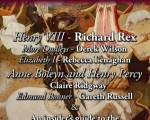
Packed with a wide range of articles about Tudor personalities like the Dudleys, Elizabeth of York, Mary I, Isabella of Spain and Henry Howard. There is part one of an insider’s guide to the Tower of London, a detailed article about Greenwich Palace and Wroxhall Abbey, an article about some bizarre Tudor foods and lots more! It’s our best magazine yet!
[Read More...]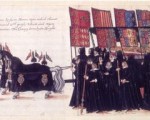
“It is not my desire to live or to reign longer than my life and my reign shall be for your good,” said Elizabeth to her parliament in 1601. Upon one of the many times parliament questioned Elizabeth about her plan of succession, she stated, “I know I am but mortal and so therewhilst prepare myself for death, whensoever it shall please God to send it.” And send it, God eventually did.
24 March, 1603. Elizabeth I, the Virgin Queen, England’s Gloriana and daughter of the great Henry VIII by the ill-fated Anne Boleyn, passed away peacefully in her sleep at Richmond Palace. She was 69 years old and had reigned for almost 45 years.
[Read More...]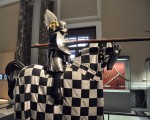
Jousting, much like rugby or American football, was a full-contact, dangerous sport. Severe injuries and even death were quite common. Henry II of France died in 1559 when a lance’s splinter breached Henry’s helmet and entered his brain by way of the eye. More like American football and less like rugby, individuals participating in the joust wore protection.
Most armour was made by smiths in either Germany or Italy, though those smiths would travel to workshops all over the continent and England. One workshop in England boasted of smiths from Flanders, the Netherlands, Germany and Italy. The city of Milan was most famous for its skilled armour smiths, though German armourers under the Holy Roman Empire outfitted the likes of Maximilian I and Charles V. Henry VIII established royal workshops at Greenwich, with previous workshops having been located in London. Some French workshops recruited Italians for their workshops in Lyon and Tours. There is not much information about armour workshops in either Spain or the Netherlands, but most of the large Belgian cities had active armourer’s guilds during the Renaissance period.
[Read More...]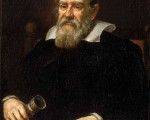
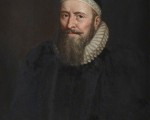
On this day in history, 4th February 1555, John Rogers, clergyman and Biblical editor, was burned at the stake at Smithfield. Rogers was the first England Protestant burned in Mary I’s reign after being condemned as a heretic. he refused the chance of a last minute pardon if he recanted, and died bravely. His wife and eleven children, one being newborn and at the breast, attended his burning. Martyrologist John Foxe recorded that Rogers “constantly and cheerfully took his death with wonderful patience, in the defence and quarrel of the Gospel of Christ.”
[Read More...]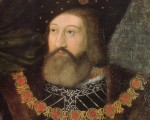
On Candlemas Eve,* 1st February 1514, Henry VIII formally elevated two men to the title of Duke. Charles Brandon, formerly Viscount Lisle, was created Duke of Suffolk, and Thomas Howard, Earl of Surrey, was created 2nd Duke of Norfolk. The ceremony took place at Lambeth and was conducted by the King.
Along with the nearly created Dukes of Suffolk and Norfolk, the only other duke in the Kingdom was Edward Stafford, Duke of Buckingham. Buckingham was a descendent of Thomas Woodstock, youngest son of Edward III. In addition to this, his mother was Katherine Woodville, sister of the late Queen Elizabeth Woodville, wife of King Edward IV. At the time, Buckingham was also the richest peer in England, with an annual income of around £6000 per year (£2,902,620.00) as well as being High Steward of England and a Privy Councillor. These positions gave Stafford a great deal of power. With royal blood running through his veins and an arrogant attitude, Buckingham was a regular member at court but it was reported that he often made those around him feel uncomfortable.
[Read More...]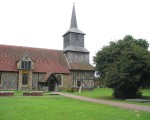
I’ve been talking about Henry VIII’s illegitimate and alleged illegitimate children in my Claire Chats videos recently so it seems appropriate to look at a woman who was the mother of the king’s only acknowledged illegitimate child, his son Henry Fitzroy, Duke of Richmond and Somerset. Over to Sarah…
Elizabeth “Bessie” Blount was the daughter of John Blount and his wife Katherine Pershall. She was born around 1498 at Kinlet Hall. Bessie’s grandmother, through her mother, had been Isabel Stanley, daughter of Sir John Stanley, a distant relative of Lord Thomas Stanley whom had married Margaret Beaufort, Henry VII’s mother. It had been Isabel’s brother Sir Humphrey Stanley whom had arranged the marriage between John Blount and his niece Katherine Pershall when the couple were only young. Sir Humphrey, while quite a rouge was also a Knight of the Body to King Henry VII.
[Read More...]
Today is the anniversary of the death of Thomas Tallis, musician and composer, on 23rd November 1585 at his home in Greenwich. Greenwich. He was buried in St Alfege’s Church, Greenwich, in the chancel and the text on the brass memorial which once marked his tomb read:
[Read More...]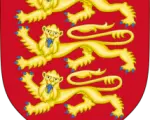
As part of the Hampstead & Highgate Literary Festival, there will be a debate entitled “Plantagenets V. Tudors: Who Were England’s Greatest Monarchs?” at 8pm on 15th November 2015 at South Hampstead High School,
3 Maresfield Gardens, London NW3 5SS.
“Henry VIII fascinates us for his greed and his murderous tendencies, his dissolution of the monasteries and his astonishing break from Rome. Elizabeth I is England’s Faerie Queene, our Gloriana. But what about the Plantagenets? 400 years before Henry VIII, the first Plantagenet – Henry II – carved an empire out of England and France that made him the most powerful prince in Europe.
[Read More...]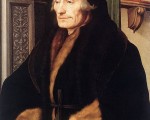
Erasmus: his name is synonymous with humanism, education and intelligence. Across Northern Europe several Erasmus programs exist at universities, so students may pursue their studies at multiple universities and in multiple languages. During his lifetime, Erasmus corresponded with such notable people as Sir Thomas More and John Colet. Erasmus assisted Hans Holbein in his quest to move to England, and advised Anne of Cleves’s father when he was writing religious tolerance laws.
Desiderius Erasmus was born on 27 or 28 October 1466 or 1467* in Rotterdam, Netherlands. His exact date of birth is not known. The second son and an illegitimate child of his father, a priest, and mother, a physician’s daughter, Erasmus was sent to school at the age of five. In about 1484, when Erasmus was approximately eighteen years of age, his parents both died of plague. Erasmus’s three guardians sent Erasmus and his brother to a new, more conservative school run by the Brethren of the Common Life. There, Erasmus studied Latin and Christian theology.
[Read More...]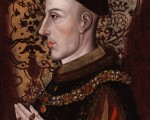
As you may have read in this month’s Tudor Life magazine, 25th October marked the feast day of Saints Crispin and Crispinian, and following the victory of England over France on 25 October 1415 at the Battle of Agincourt, the day became a celebration of that event too. Celebrations included bonfires, revelry and the crowning of a King Crispin.
Today, Heather Darsie shares an article with us on the Battle of Agincourt back in 1415.
[Read More...]
Here is the transcript of the session for those who weren’t able to make it live to Susan Fern’s chatroom session.
[Read More...]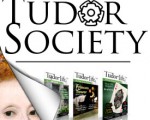
We’re pleased to announce the Tudor Society 2 day unlimited pass!
For just $6, you can now try out the Tudor Society for two days. The 2 day unlimited pass gives you full access to the Tudor Society website meaning that you can view the latest content and also the archives, which include Tudor Life magazine, our expert talks, Claire Chats videos, our weekly quizzes, resources and more. It’s perfect for those wanting to see what the Tudor Society is all about before joining.
[Read More...]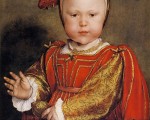
At two o’clock in the morning on Friday 12th October 1537, St Edward’s Day, Jane Seymour finally gave birth to the future King Edward VI after a long and tiring thirty-hour labour. Henry VIII had a legitimate son and heir at long last!
Chronicler Charles Wriothesley recorded the good news and the subsequent celebrations:
[Read More...]